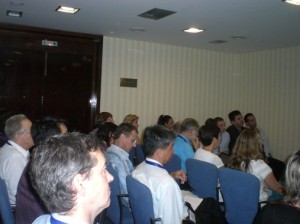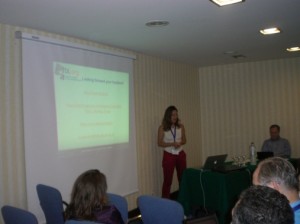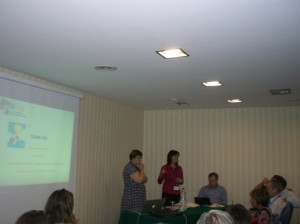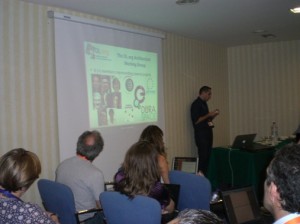Discussions on Enhancing the Reference Model

Workshop Attendees 2
“The Reference Model should not only take into consideration technical work in other fields, where similar issues are being addressed, but should also encompass mass digitization, to increase the value-add of the document.” Geneva Henry, Rice University, member of DL.org’s External Advisory Board.
“The functions for mass digitization are in the Reference Model but perhaps they are referenced in a specific way and need pulling out and better clarifying.” Sarah Higgins, Digital Curation Centre, member of Quality WG.
“Mass digitization is definitely considered in the policy domain.” Perla Innocenti, HATII, University of Glasgow.
The role of librarians & engaging the library community
“The project needs to make an effort to bring into play librarians as soon as possible as this would help the discourse being too computer science dominant. At least one level of the Reference Model should be made accessible to the community.” Stefan Gradmann, Humboldt University, member of Content WG.
“We need to educate people from libraries so they can see the advantages of all the possibilities.” Dagobert Soergel, University at Buffalo.
“Digital Librarians carry an important baggage of skills and knowledge, as they need to understand what they are trying to deliver to their community of users in terms of architecture and software. While they do not know the deeper complexities that computer scientists deal with, their experiences and knowledge bring value-add to the technical work within DL.org and beyond“. Sarah Higgins, Digital Curation Centre, member of Quality WG.
Fostering forward-thinking approaches in academic courses
Stefan Gradmann (Humboldt University) and Seamus Ross (University of Toronto) both highlighted the important role that universities can play in fostering forward-thinking academic courses. In their view, library and information science teaching is inextricably bound up with effectively engaging the library community.
“Students today come from particular backgrounds with diverse interests and a general lack of the technical skills needed. But as we move forward, engineering will play an increasingly bigger part. Today’s students will have very different jobs and roles than their peers in tomorrow’s world, as they will acquire different skills and move up the ladder far more quickly. It is therefore important to raise the profiles of the pioneers across Europe and even in the U.S., such as at events like the iConference in Obama in January 2010.” Seamus Ross, University of Toronto, member of Policy & Quality WGs.
Academic institutions like Humboldt University, the University at Buffalo and the University of Toronto are playing a pioneering role in this respect by incorporating the Reference Model into their courses.
Moderator: Yannis Ioannidis, University of Athens



